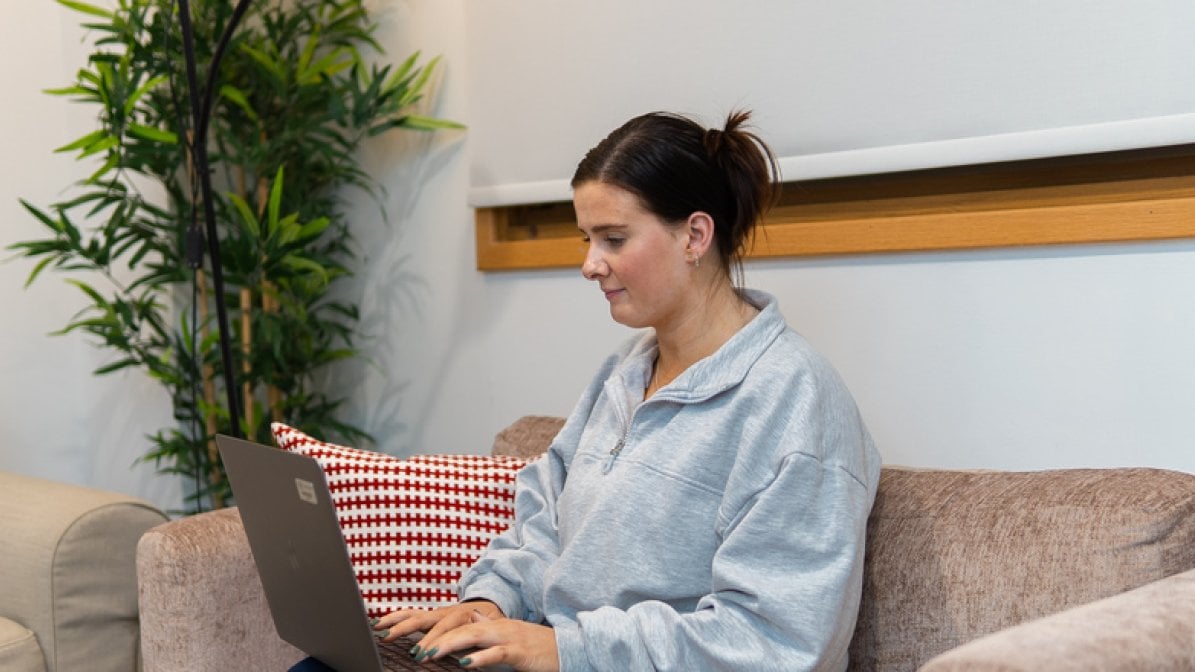
'You’re encouraged to highlight how your journey has equipped you with certain skills or personality traits that make you a valuable asset.'
Universities and colleges welcome students from diverse backgrounds and with a range of unique strengths and qualities. Here, we offer guidance on how to showcase the valuable and transferable skills drawn from your personal experiences and circumstances.
The personal statement is your opportunity to show the university or college that you have the potential to succeed on the course, and demonstrate your commitment to studying the subject area you’ve chosen. We have plenty of advice to help you write your personal statement — you can find more guidance here.
Outside of education and academic achievements, some students worry about what they can include about their experiences outside of education. For some, additional responsibilities or personal circumstances have limited their ability to extra-curricular activities, work experience, sports teams, and after-school clubs. However, it is very likely that your individual experiences will have given you different skills and experiences which are just as valuable and transferable to your course.
In this guide, we’ll help you consider your personal responsibilities, and the skills and personal characteristics you may have gained from them – all of which can be used to make your personal statement stand out from the crowd.

'You’re encouraged to highlight how your journey has equipped you with certain skills or personality traits that make you a valuable asset.'
Think about the skills and characteristics you will need for different aspects of your studies – perhaps make a list for:
Once you have some ideas, you can start to think about ways in which you can demonstrate these skills and qualities using your own experiences. The guides below will help you think about these more closely.

We’ve worked with Carers Trust and their network of student carers to help you identify your key strengths. Highlighting these in your personal statement is key, as they’ll make up for any experience missing due to your caring responsibilities.
Read more about going to university or college if you have caring responsibilities
If you have caring responsibilities, your free time may be limited and you may find it difficult to participate in activities such as volunteering, after-school clubs, local societies or work experience. Student carers tell us they sometimes feel like they’re missing out on opportunities to build an impressive personal statement. However, you’ll undoubtedly have developed lots of additional skills and strengths that are highly valued in higher education.
Providing unpaid care for a family member or friend develops a range of important skills and characteristics. Thinking about these is a great starting point for writing your personal statement. You don’t have to go into lots of detail; it’s about showcasing your skills and demonstrating your suitability for the course.
Let’s look at things to note down to help you think about what to include in your personal statement. These are just ideas to get you started, and you’ll probably think of others you’d like to add.
These are the things you do as a carer. For example:
These are the skills you demonstrate through your caring responsibilities – think about how your responsibilities have helped you build skills. Here are some ideas other student carers have suggested to get you started:
This focuses on the person you are, perhaps as a result of caring for someone else - consider how the responsibilities and skills you’ve listed have helped you develop these characteristics. Again, we have given you some ideas from other student carers to help you get started:
Read more advice for young adult carers about identifying transferable skills on the Carers Trust website.
Action for Carers offers a young carers’ skills journal to help you think about your skills in more depth.

Being an estranged student means you’ll be studying without the support of either of your parents due to a breakdown in your relationship.
We’ve worked with estranged students to help you think about the skills, experience, and strengths to write about in your personal statement.
Read more about going to university or college as an estranged student
As an estranged student, it’s likely that you’ve lived in difficult conditions at home and may no longer be in contact with your parents or wider family members. Your circumstances may have affected your ability to participate in activities such as volunteering, after-school clubs, local societies or work experience.
Students who are estranged from their parents tell us they sometimes feel like they’ve missed opportunities to build an impressive personal statement. However, your circumstances may mean you’ve had to overcome many personal challenges – and you’ll have undoubtedly gained a variety of skills and strengths that are highly valued in higher education.
Applying to university or college without family support is a very positive personal step, so identifying your transferable skills and characteristics will help your application stand out. You don’t need to go into detail - it’s all about showcasing your skills and demonstrating your suitability for the course.
Let’s look at things to note down to help you think about what to include in your personal statement. These are just ideas to get you started, and you’ll probably think of others you’d like to add.
These are the things you have to do because you are estranged from your parents. For example:
These are the skills you demonstrate as a result of your estrangement – think about how your responsibilities and actions have helped you build skills. Here are some ideas other estranged students have suggested to get you started:
This focuses on the person you are, perhaps as a result of studying without support - consider how the responsibilities and skills you’ve already listed have helped you develop these characteristics. Again, here are some ideas from other estranged students to help you get started:

Displaced students include those who are refugee or humanitarian protection status, have an insecure immigration status, or seeking asylum.
We’ve worked with Student Action for Refugees (STAR) and their Equal Access Activists to help you identify your key strengths and transferable skills as you apply to university or college.
Read more about going to university or college as a displaced student
Displaced students sometimes find it challenging to participate in activities such as volunteering, after-school clubs, local societies or work experience. This is often because they are trying to navigate the asylum process or adjusting to life in the UK.
Although no refugee experience is the same, it is likely that you’ve gained many additional skills and strengths while managing the complexities of restarting your life in the UK. Thinking about what these are will give you a great starting point for your personal statement and help you stand out. You don’t have to go into detail - it’s all about showcasing your skills and demonstrating your suitability for the course.
Let’s look at things to note down to help you think about what to include in your personal statement. These are just ideas to get you started, and you’ll probably think of others you’d like to add.
These are the things you’ve needed to do as a result of your displacement. Other students have suggested some starting points:
These are the skills you demonstrate as a displaced person. Think about how your responsibilities and actions have helped you build skills – other displaced students have suggested some ideas to get you started:
This focuses on the person you are, perhaps as a result of becoming displaced. Consider how the responsibilities and skills you’ve already listed have helped you develop these characteristics. Again, here are some ideas from other displaced students to help you get started: